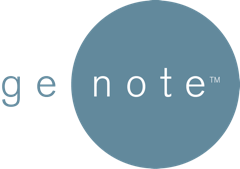
THE GENOTE BLOG
Inspiring, creating and living Health Music
Adolescents struggling for life
I pretty much fell in love with Genote on the first Sundown session that I attended. I felt in sync with my emotions, they were truly mixed and molded in to who I was in that moment.
Recently, during a Genote initiative, I worked with struggling adolescents who are trying to develop skills to cope with gravely serious challenges. I wanted to create a team that could work together and share meaningful insights about themselves and their surroundings. I wanted them to share beauty and be persuaded to be real actors in their personal path to happiness.
Mental issues, emotional challenges and interpersonal relationships seem to be ever-increasing for the adult community and young generations. Approximately 1 out of 5 adolescents aged 13–18 (21.4%) experience a severe mental disorder at some point during their life. For children aged 8–15, the estimate is 13%. (1) More drastically, in 2015, statistics on adolescents and young adults aged 15-24 indicate a suicide rate of 12.5%. (2)
When the activities began, the group was rather small with new participants every week and with an inconsistent number of students. Some of them were excited to be there, and others were really tired and stressed out. One day, after some light conversation, we began the activity by trying to dig a bit deeper and getting to know them better. We asked them to share something about themselves, possibly something they had never shared before.
Some of them shared a few personal details, some spoke rather mindlessly, but, generally, we all felt that no one had decided to bring the conversation to a deeper level. While working with adolescents we try to maintain a consistent focus, help them recognize the superfluous in conversations and help them become more open to healthier relationships.
One day, we asked them to lay down and listen to the music we had prepared. Three compositions, with three different and carefully chosen emotional connotations and complexities. After 20 minutes of listening, we resumed the conversation by asking them to describe their experience, feelings and thoughts. This is when something special happened!
“I pretty much fell in love with Genote on the first Sundown session that I attended.
I’ve always greatly valued music and appreciation of art, and then being in a place of constant noise and stress (I would say) a time of quiet and isolation of music and art was very much needed.
Some sessions I really was entranced by the music and was able to devote my undivided attention to it, on other days especially days that I feel spaced out, acting as if I’m on autopilot I wouldn’t be able to concentrate on the music at all. It was just another hour that passed by my eyes. On the days that I was capable of absorbing myself into the music, I felt refreshed and was able to convert my newfound energy to the next few hours of the day.
My last Sundown session was an experience separate to the rest of the sessions.
I felt the singing and the music resonate through my body as I exhaled a deep sigh of dread for the upcoming separation. I felt in sync with my emotions, they were truly mixed and molded in to who I was in that moment. The separation between me and my friends/peers of elevations, my separation of all the unique experiences that I have been having whether it’s Genote or volleyball or groups. It was a hard separation, one filled with sadness, longing, and also excitement and hope.
That pretty much sums up my experience with Genote, hopefully this helps in one way or the other.
”
The general behavior changed, and the level of each student’s willingness to share their personal feelings and story increased considerably. The level of comfort created during the session, allowed them to listen to each other, find helpful insights and build meaningful memories. The quality of personal interchange increased; over the following months, the Genote Sundown sessions helped them discern trustworthy relationships and determine important building blocks for their character and for the future.
We studied music for a long time; over the last 30 years, music's applications in clinical settings have increased significantly, and we are amazed by music’s capacity not only to influence our emotions and biological parameters, but to push us to be better people and help us build great memories as a way to nurture great qualities within ourselves. We are continuously recording each new session and continue to update Genote Health Music. We see great potential. We see hope and growth, and that is what we work for.
Any Disorder Among Children. (n.d.) Retrieved January 16, 2015, from http://www.nimh.nih.gov/health/statistics/prevalence/any-disorder-among-children.shtml
Centers for Disease Control and Prevention (CDC) Data & Statistics Fatal Injury Report for 2015.
NAMI - National Alliace on Mental Illness http://www.nami.org/Learn-More/Mental-Health-By-the-Numbers#sthash.FgWBgscB.dpuf
The Importance of Early Auditory Experiences in Premature Infants - A Mom Testimony
My twins are almost 2 1/2 years old and have been listening to their Genote sound machine since they were infants. They initially spent 31 (my daughter) and 35 days (my son) in the NICU.
“A premature baby’s main challenges are represented by the immaturity of the infant that is thrown from the optimal environment of the mother uterus into a very uncomfortable place with sounds, noises, lights and painful procedures that prevent her recuperating and developing fundamental competencies for grow and health. The baby knows how to communicate and tell us many things, but she needs somebody to listen to her and look at her. (1)”
Preterm birth, is the birth of a baby at fewer than 37 weeks gestational age. It is a common condition that affected about 1 out of 10 babies (9.6%) in the US during 2016 (2) and is the most common cause of death among infants worldwide.
Because of the gravity of this situation and the possibilities that exposure to sound offers to preterm babies and their parents, Genote invested many years in research and clinical experiences to develop a method based on structured listening protocols designed to help the baby’s neurological development, improve sleep, pain management, and recovery. Optimized for the clinical setting as well as the home, the Genote system can be implemented by families or medical personnel during and after hospitalization.
Preterm babies that spend their first weeks or months in the neonatal intensive care unit (NICU) are deprived of the entire range of sounds that would come from their mothers. These absent sounds are mainly sounds they would be hearing while in utero; low-frequency bands of the mother’s voice and rhythmic bits from the mother’s heartbeat.
Countless studies reviewed by the Genote scientific team show the importance to protect the baby from a wide array of noises (including harmful white noise) while stimulating the auditory system with structured sounds and melodies that allow for proper stimulation, development of the auditory brain, speech and language acquisition. (3-5)
In our many stories of supporting and informing families struggling with this problem, we met many great mothers and strong babies that teaches us not only about the meaning of life but also of their great resiliency and the importance of the human interaction for their growth and development. Lately, we met Diana from Los Angeles, who decided to try Genote on her two premature babies. This is her testimony.
“My twins are almost 2 1/2 years old and have been listening to their Genote sound machine since they were infants. They initially spent 31 (my daughter) and 35 days (my son) in the NICU. The music has been so soothing to them and I believe it helps them understand melody that much more in their music class and in our life. I would highly recommend it to all newborns and napping little ones over white noise.
”
Music for Depression
"6 months have passed by and the program has progressed past it’s first stages; For me, and now many others, every week I spend in Genote has been more than beneficial." - Sam
Since 2003, Genote has been focused on developing Health Music protocols for the mental health arena. Initially, we wanted a chance to assist the therapeutic process by creating a mentorship-like relationship between a music experience and a patient. After 2012, Genote identified a few pivotal, working elements in the therapeutic cycle: problems such as insomnia, depression, anxiety, and lack of concentration, rigid thinking and distress tolerance. These mental health issues are now considered crucial in building healthy lifestyles, and professionals seek to offer appropriate developmental tools to people of all ages.
It is rewarding is to see how Health Music protocols are being applied for adolescents at risk, in dire conditions and even desperate stages of their lives.
Based on the Music Education Therapy method (MET), through Genote technology, we created a Music Mentorship Program to support and increase therapeutic objectives, educational experiences and health targets. We combined Genote Health Music (for Sleep, Anxiety, Focus, Rigid Thinking and Distress Tolerance) with group sessions called “Sundown”. The Music Mentorship program helps young people in clinical environments and diverse clinical settings while they struggle with different aspects of mental health.
Clinical settings, even lock-down facilities, require a tailored, differentiated implementation according to each institution’s specific goals, environment and workload.
Genote has been successfully applied and evaluated in NICUs, professional sport teams, wellness programs, and alzheimer treatment clinics. We’d like to take this opportunity to share some first hand accounts of how individuals have found personal benefits through Genote Health Music.
We feel fortunate to get the chance to help youth in Residential Treatment Centers. One of your partner organizations, Elevations RTC, has implemented a variety of Genote programs and tackled different psychological and mental health issues. While working with their resident therapists and psychologists to equip students with personalized access to the Genote Library, students and staff participate in individual sessions, group sessions and other initiatives. More and more students are using the program as they witness positive experiences from their peers. The students decide to sign up, experience Genote, and move forward all on their own initiative.
Here is one student’s description of his experience.
“The Genote Project that I have experienced began as a trial project with 5 other kids in the back of a library listening to and discussing classical music. Since then, 6 months have passed by and the program has progressed past it’s first stages; For me, and now many others, every week I spend in Genote has been more than beneficial. The relationship we have developed with the Genote Team has become therapeutic and deep. The trust that has been the foundation of their work has allowed the bond we have created to flourish. The wisdom they share and the time they have spent has not only improved our knowledge and understanding of music, but our knowledge and understanding of healthy living. I’m thankful for what they have done and excited to see where their program goes.”










